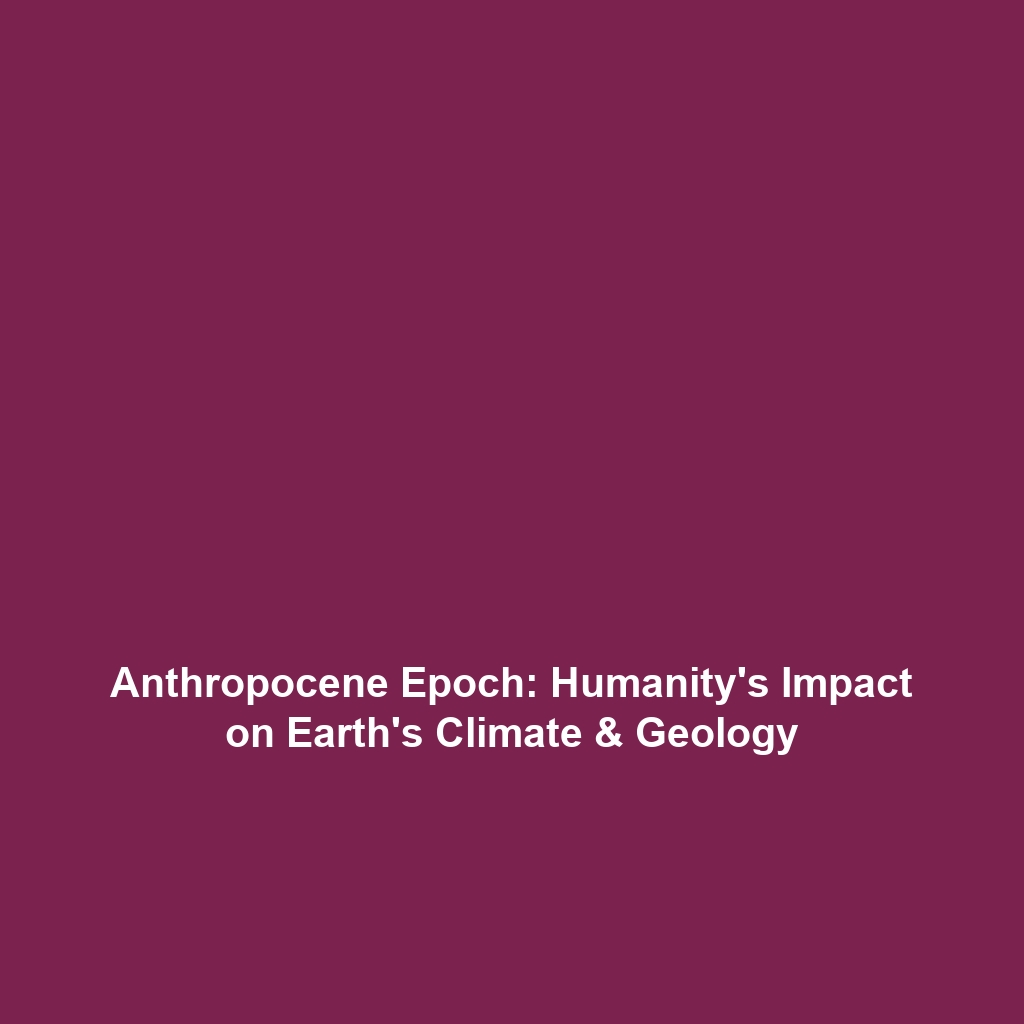Human Impact on Earth’s Geology: A New Geological Epoch
Introduction
The concept of a proposed geological epoch, often referred to as the Anthropocene, signifies a remarkable period in Earth’s history characterized by substantial human impact on its geology and ecosystems, including climate. This epoch highlights critical shifts in climate patterns, biodiversity loss, and alterations to natural processes due to anthropogenic activities. Understanding this proposed epoch is vital within the broader scope of Climate History, as it encompasses the intricate relationship between human behavior and its environmental consequences. By examining the Anthropocene, we can gain deeper insights into past, present, and future climate trends.
Key Concepts
Geological Epochs and Human Influence
The Anthropocene is defined by several key concepts that underscore the degree of human influence over geological and ecological processes:
- Geological Stratification: The Anthropocene is characterized by distinct layers in sediment that reflect human activity, such as plastic waste, industrial pollutants, and increased carbon footprints.
- Climate Change: Human-induced climate change results in warmer temperatures, melting ice caps, and rising sea levels, which are major indicators of the epoch.
- Biodiversity Loss: The rapid extinction of species due to habitat destruction and pollution represents a stark consequence of human actions during this epoch.
These concepts together illustrate how the Anthropocene fits into Climate History, emphasizing the urgency of addressing human impacts on the planet.
Applications and Real-World Uses
The study of the Anthropocene has significant implications for various scientific and practical fields:
- Environmental Policy: Understanding the effects of human impact helps shape effective environmental regulations and climate action plans.
- Conservation Efforts: Insights from the Anthropocene guide conservation strategies aimed at mitigating biodiversity loss.
- Climate Change Mitigation: Research on this epoch supports initiatives to reduce greenhouse gas emissions and promote sustainable practices.
This demonstrates how the concept of the Anthropocene is applied in discussions surrounding Climate History, informing strategies to combat climate change.
Current Challenges
Studying the Anthropocene presents several challenges and limitations:
- Defining the precise start date of the epoch remains debated among scientists.
- Data collection and analysis require extensive interdisciplinary collaboration, which can be logistically challenging.
- Public understanding and awareness of the implications of the Anthropocene are limited, necessitating extensive educational efforts.
These issues underline the challenges of advancing knowledge within the context of Climate History.
Future Research and Innovations
Future research related to the Anthropocene holds promise for significant advancements in our understanding of Earth’s systems:
- Ongoing studies focus on the long-term impact of human practices on geological processes.
- Innovative technologies such as AI and big data are being harnessed to analyze environmental changes more effectively.
- Research into sustainable practices aims to offer solutions to mitigate the adverse effects identified during this epoch.
These innovations highlight the potential for breakthroughs that could reshape our approach to Climate History.
Conclusion
In summary, the proposed geological epoch known as the Anthropocene represents a significant focus within Climate History, reflecting humanity’s profound impact on Earth’s geology and ecosystems. By understanding this epoch, we can better grasp the urgency of addressing environmental challenges. As we continue to explore the implications of the Anthropocene, it is crucial to engage in discussions and actions that promote sustainability. For more information, consider exploring our other articles on climate change and environmental science.

Leave a Reply